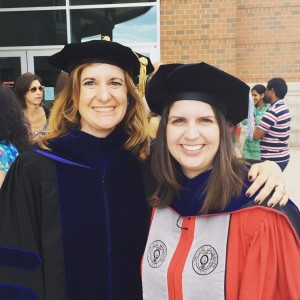Please find this post at: https://clairekampdush.com/2018/05/10/how-to-succeed-in-college/
Dear students,
The science of learning has identified many study strategies that can increase retention and comprehension, yet most college professors rarely talk about these strategies. Below I cover four topics: efficient study skills, accountability structures, distraction blockers, and additional tips. If you apply these strategies to every college course you take, and your life in general, the good news is that you will get better grades and improve your overall success in college, and the even better news is that it will probably take you less time than your current strategies and will improve your well-being.
Efficient Study Skills
The single worst way to remember something is to read it. That is, the single worst way to study is to read your notes. If you want to remember something, you have to practice remembering it. The first study strategy I am going to suggest to you is retrieval. In cognitive science, the retrieval effect suggests that if you want to remember or retrieve something from your memory, you have to PRACTICE remembering or retrieving it from you memory! If you do not practice retrieving it, then why do you expect to be able to retrieve the information on your exam, or, later in life, as most college professors would like you to do as you apply the concepts from your coursework to the real world. In fact, according to science, the more times you have to remember something, the more likely you are to remember it in the future. Thus, practice retrieval.
Try making flashcards, using resources from your textbook which may include flashcards, or use Quizlet or other applications or websites that allow you to create your own flashcards or games. You can try creating regular flashcards, or try a strategy I once heard an ADHD coach suggest – create a visual depiction along with the word you are trying to remember. If you are a visual learner, you may remember better with the visual cue in conjunction with the word. Have a friend quiz you – perhaps a friend you make in this class, or another friend. Take turns quizzing each other on material from your respective courses.
The second study strategy I am going to suggest to you is prediction. In an experiment, UCLA researchers found that the simple act of predicting what you are going to be taught, even if it is wrong, increases retention of material. Specifically, according to James Lang’s book Small Teaching, when you use prediction: “you are compelled to search around for any possible information you might have that could relate to the subject matter and help you make a plausible prediction. That search activates prior knowledge you have about the subject matter and prepares your brain to slot the answer, when you receive it, into a more richly connected network of facts.” (p. 49). If you want a better grade in your courses, try predicting what you think you will learn in a reading, in a lecture, or in a video or podcast before you consume the material. Specifically, try reading the title of a chapter or video. What do you think it is going to be about? What do you think will be the four main points? Read the chapter or watch the video. Were you right? Even better, go back and correct your answers. This strategy will help you retain the material for the exams, and even later in life.

